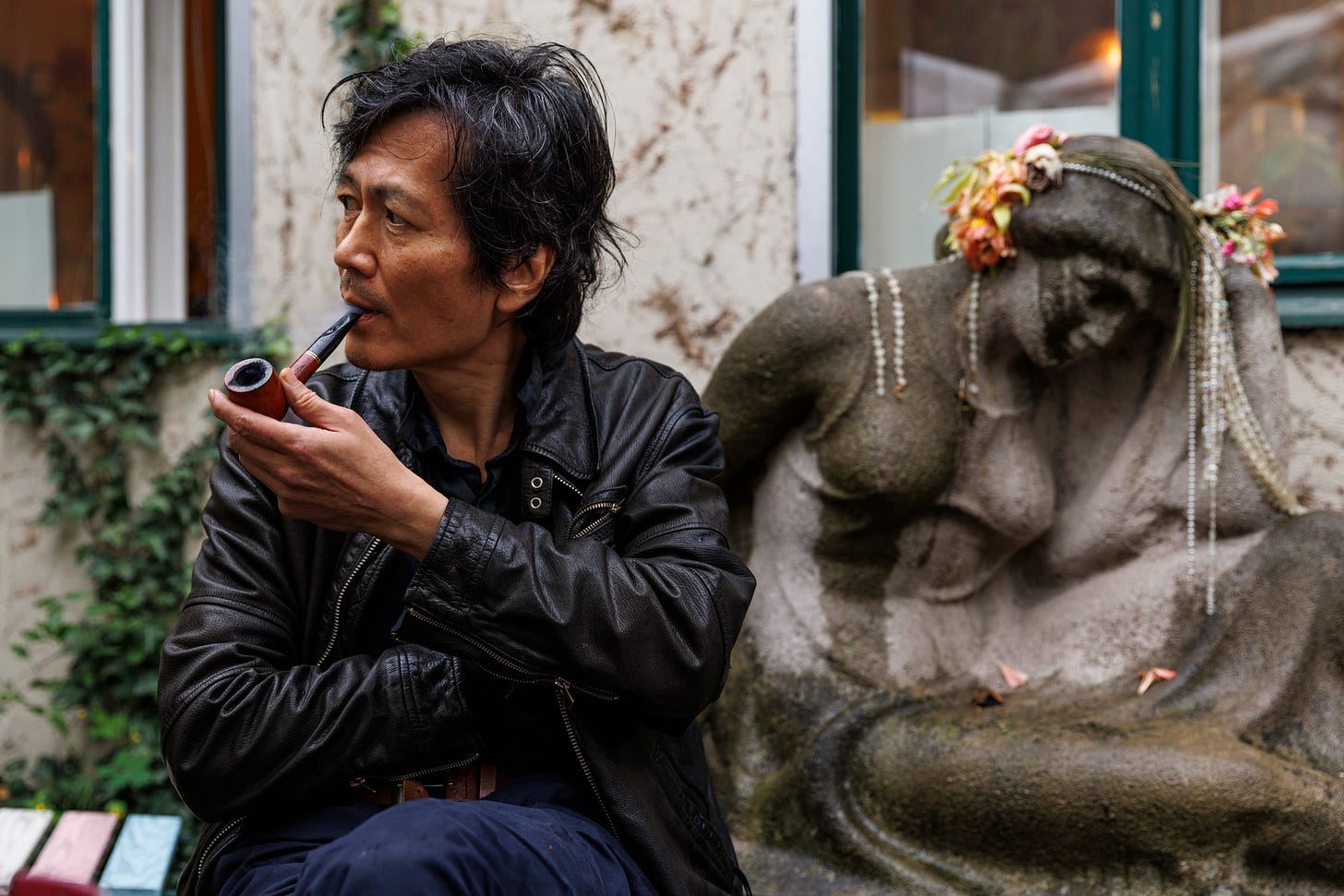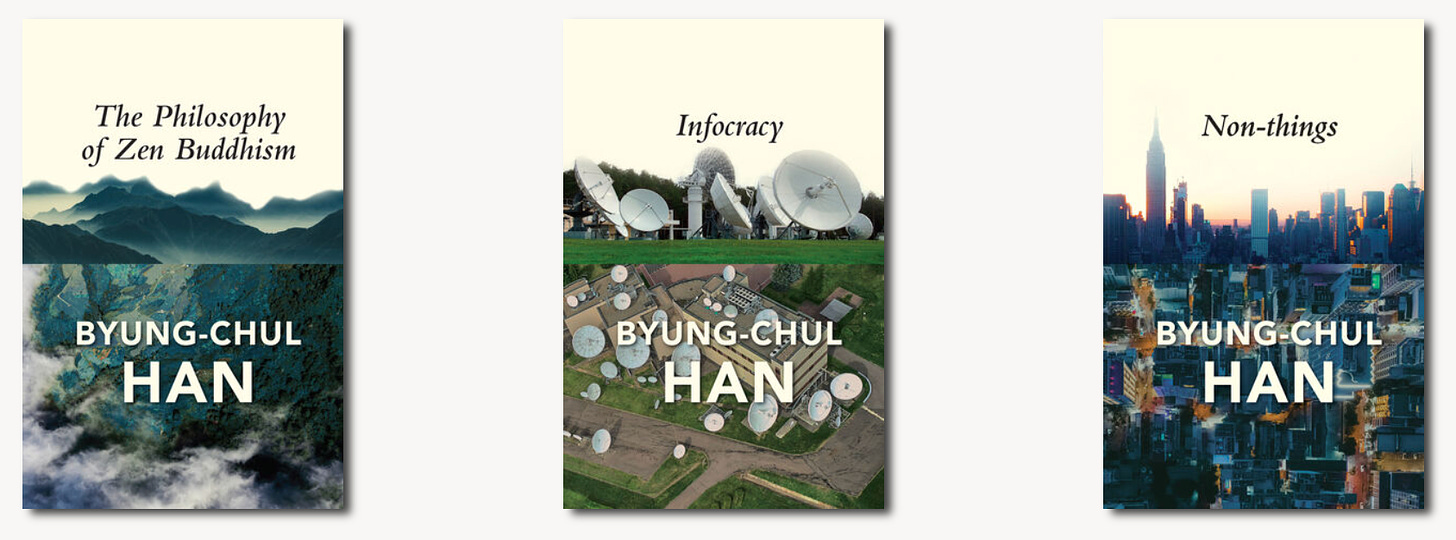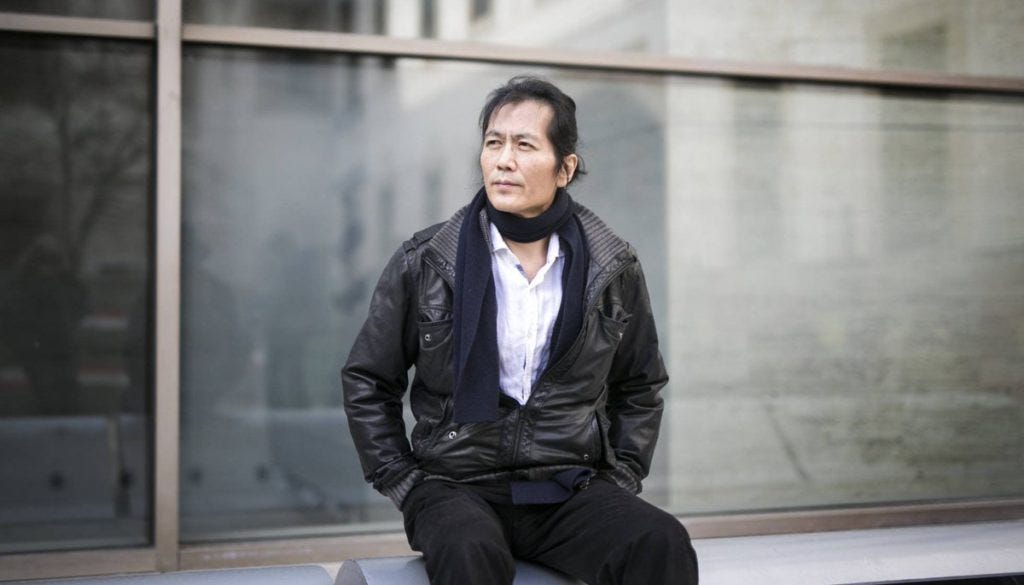Nate Gallant: Do you ever feel like everything you encounter in culture is the same, but no one is talking about precisely the same Things? That is, rather than there being a tenuous center of culture, and attendant struggles over its terms and authority, you, the consumer, are instead constantly drowning in the bland, siloed flattening of any and all forms of cultural production, affiliation, selfhood, and otherness? Do you feel it harder and harder to tarry with any authentic version of yourself outside of its most readily commodifiable form?
Then maybe you've already read Byung-Chul Han, or maybe you might like to. In group chats and email threads, One Thing has taken to calling him the philosopher of the 21st century, or at least the 2020s (sorry Foucault, it doesn't seem to be Deleuze, after all). Can we call him BCH, like a more deserving Bernard-Henri Lévy? A less vampiric Žižek? A more aphoristic, German supplement to Fred Moten?
Whatever his future may be, at present, BCH is a Korean-German philosopher, currently teaching part-time in Freiburg. He usually produces about a monograph a year in German, most of which are now translated into English, French, and Spanish, among other languages. He generally eschews the eyes of the Anglocentric culture industry. He is as fashionable as he is prolific. He is a deeply engaged critic of contemporary culture, from our digital lives to the new frontiers of labor — bringing us, for instance, to the notion of burnout culture several years before the now-famous BuzzFeed piece. He is also notably the philosopher du jour of most of my friends who make art, an affinity perhaps also demonstrable by most of his English language interviews arriving in art journals rather than the traditional sources of theory.
At the same time, BCH remains trenchantly committed to the bit of the philosopher and their duties to a public readership, of standing at the would-be metaphysical abyss, as he writes in his recently translated Philosophy of Zen Buddhism: “A philosopher must bear death in mind. Caring about philosophy means caring about death. The philosopher must die within life, must, while living, anticipate death by fleeing and despising the body as the place of evil and finitude.” I would take few other people who wrote this sort of thing very seriously.
Though his thought can sprawl, one thread of BCH’s work is a kind of manifesto against inauthentic forms of selfhood. His main target in Psychopolitics and The Burnout Society, for instance, is an "excess of positivity" in culture — that is, a loss of the various dynamics of negation and conflict by which our selves can differentiate, grow and change over time, and come into conflict with authorities. Rather than a struggle with mommy or daddy, or your boss, or some previous version of yourself, our reference points for self-understanding have been replaced with a terrible improv class of selfhood – YES AND, always. More stimuli. More work. More versions of some commodified iteration of myself to encounter online, either through presenting and representing my personal social media presence, or in the echo-chamber of things that algorithmic culture thinks I might like. Every bland form of affirmation on the internet amounts to nothing new in your sense of personhood — just a sort of okay sure, you're still there, huh? Here's some more of that.
If you are interested not just in BCH’s diagnoses, but his prescriptions, and feel that looking anew at the textual archives of the increasingly colonized others of Western culture might offer new resources for resisting the cataclysm of similitude, you can check out his new trio of books on spirituality and politics. The Philosophy of Zen Buddhism (German original 2004; English 2022), Absence: on the Culture and Philosophy of the Far East (G: 2007; E: 2023), and Vita Contemplativa (G: 2023; E: 2024). Here, he partly echoes the arguments of the Davids, Graeber and Wengrow, in The Dawn of Everything, noting that any nostalgia trip to recover pre-modern modes of selfhood will lead us nowhere. Han proposes to orient us towards an authenticity based not on any particular culture, historical moment, or conceptual heritage, but rather on a genuine re-engagement with the peripatetic, and thus multitudinous shape of our very existence — culturally, politically, spiritually. Seeking and refining identity is a necessity, but also the problem. Try, when you can, not just to rest, or recharge, or take care; but just, to float.
If our present is "poor in rest," in "in-betweens," if we are being overrun by the exhaustion of always encountering sameness, then the power to say no, to stop the onslaught is essential, BCH writes:
Negative potency [...] is the power not to do—to adopt Nietzsche’s phrasing, the power to say no…The negative of not-to also provides an essential trait of contemplation. In Zen meditation, for example, one attempts to achieve the pure negativity of not-to, that is, the void—by freeing oneself from rushing, intrusive Something. Such meditation is an extremely active process; that is, it represents anything but passivity. The exercise seeks to attain a point of sovereignty within oneself, to be the middle." (Philosophy of Zen Buddhism)
Personally, I am generally very engaged by the axiomatic grandeur of BCH’s writing. I don't agree with all of it, but I am glad to follow the critical energies that bind the yawning breadth of his studies. His examples from the Buddhist and Confucian archives are sometimes confusing, and potentially trite (Asian thought is too often presented as palliative for various symptoms of Western modernity). Other moments, however, such as his discussion of the "inherent friendliness of all things" or his critiques of modern subjectivity's emphasis on "appetition," are very intriguing and productive.
Could this be the end of French philosophy’s monopoly over the image of critic, flowing through the enduring trope of the long-dead flaneur? Maybe. Try embracing your eclectic philosophy aunt or uncle. Mine is BCH.
Kyle Chayka: BCH looks really cool in a leather jacket, and seems like he should always be smoking a cigarette. I think we can all agree that these are two of the key qualities to seek in a contemporary philosophical icon.





That Art Review interview is one of my favorites, I return to it often. Very here for the BCH love.